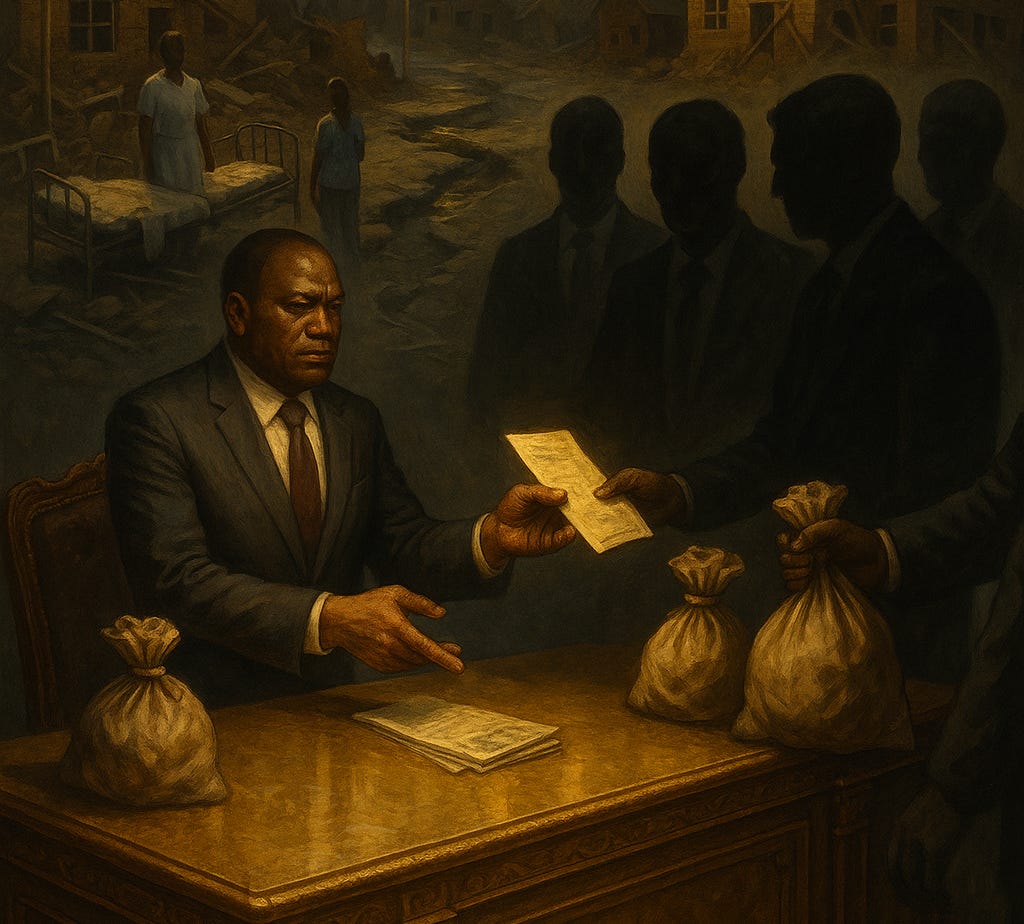How BEE Made South Africa’s Grand Corruption Possible
To end this corruption, the law that sustains it must be repealed. End BEE. Scrap every regulation that replaces open competition with political discretion.
Corruption in South Africa has not grown by accident. It has been made possible by law. The policy of Black Economic Empowerment, presented as a means of redress, has in practice become the legal and moral cover for large-scale theft. It allows officials and their allies to treat public money as a private resource, and to do so under the banner of “racial justice”. Without BEE, the corruption that now cripples South Africa would not have been possible.
When government holds power to decide who may trade, who may contract, and who may work, corruption follows as surely as night follows day. Every permit, licence and tender becomes an opportunity to sell favour. The only real defence against corruption is to remove discretion and to limit the government to protecting rights and enforcing contracts, not picking the winners and losers in the economy.
BEE entrenched political discretion in every sphere of commerce. It turned race and connection into legal conditions for doing business. Officials were given authority to ignore merit, competence and price in favour of political formulas. What once required a bribe could now be achieved through “empowerment”. Procurement became a way to distribute benefits. Those with skill were pushed aside by those with the right connections. Corruption ceased to be a crime against the system and became the system itself.
The consequences
The results speak for themselves: contracts inflated beyond reason, goods undelivered, and public services in collapse. The billions lost to “empowerment partners” are not abstractions. They are unbuilt schools, potholed roads, and hospital patients dying in the corridors. Nowhere is this decay clearer than at Tembisa Hospital, where money meant for healing was so atrociously plundered that the institution built to save lives was turned into one that destroys them. It stands as proof of a government that has turned against the people it was meant to serve.
Thomas Sowell, who studied similar policies around the world, observed that whenever government uses race as a basis for economic favour, the result is always the same: power and wealth flow to those closest to authority. “Group preferences,” he wrote, “tend to benefit the most fortunate members of the preferred group, while doing little for those most in need.” BEE follows this pattern exactly. It has created a small circle of beneficiaries whose main qualification is proximity to power, not contribution to value creation.
Walter Williams set out the mechanism: “When politicians decide who gets what, corruption is inevitable.” He showed that every expansion of government discretion reduces the scope for honest business. BEE entrenches the power of officials to decide who may participate in the economy, and they use that power to reward allies and exclude others. Corruption is therefore not an aberration; it is a function of the law itself.
The way forward
The moral failure runs deeper still. Equality before the law is the only equality that can exist without doing injustice to anyone. Once government classifies people and allocates rights by category, it destroys that equality. It teaches South Africans that success depends on political favour, not on creating value for others. It divides people between those who grant favour and those who must seek it, replacing the pride of self-reliance with submission to authority and the hope of patronage.
To end this corruption, the law that sustains it must be repealed. End BEE. Scrap every regulation that replaces open competition with political discretion. Publish all tenders and contracts for public inspection and make everyone who can provide value for money eligible to participate in tenders. Remove BEE, remove government discretion, and corruption will end.
Eustace Davie is President of the Free Market Foundation and author of Jobs for the Jobless and Unchain the Child.




